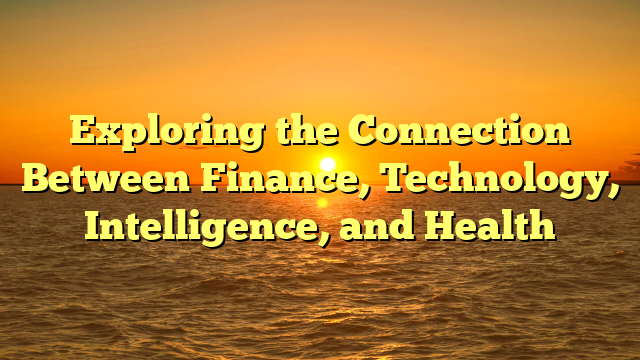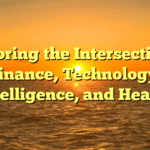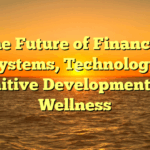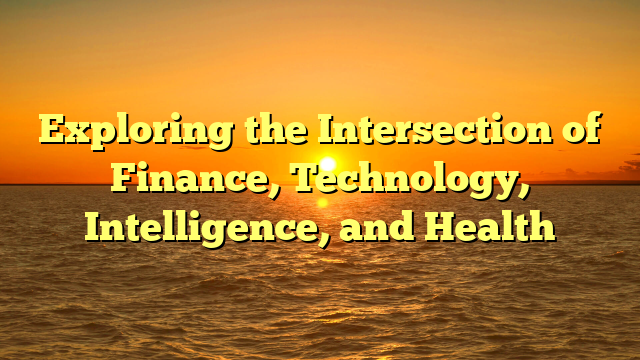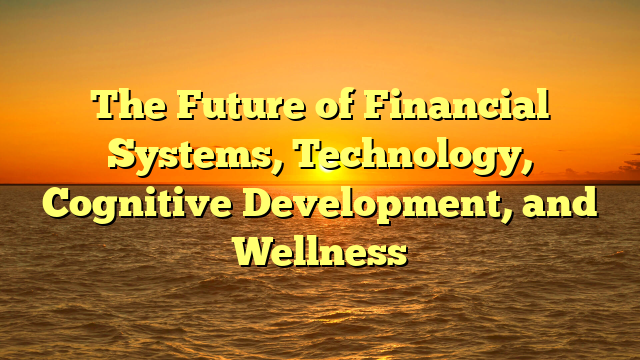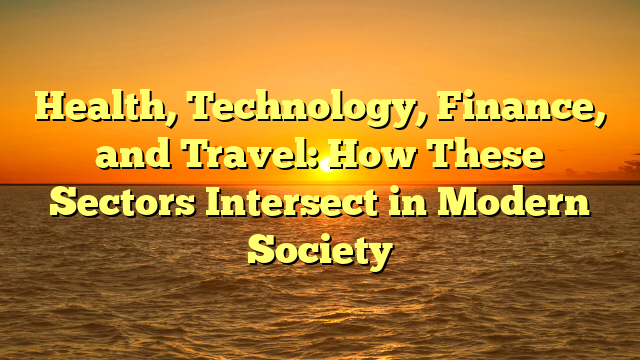As the modern age accelerates, the convergence of financial systems, technological innovation, intelligence, and healthcare is redefining how we thrive. togel singapore , once seen as separate, are now interdependent, creating new dimensions for individuals, businesses, and governments alike.
Finance in the Digital Age
The financial industry has undergone a radical transformation due to breakthroughs in digital innovation. Traditional banking systems are now being disrupted by blockchain solutions.
Digital wallets like PayPal are becoming mainstream payment options, reducing the need for in-person transactions. Additionally, the emergence of decentralized currencies such as Solana has opened new avenues for investment and trade.
Blockchain-based contracts, powered by blockchain, are revolutionizing the way we handle transactions. These contracts execute automatically once conditions are met, minimizing the need for third parties.
Technology’s Role in Finance and Health
Technology is not only innovating the financial landscape but also advancing the healthcare sector. Through wearable devices like smartwatches, individuals can now monitor their heart rate in real time.
Telemedicine has become widely accepted, especially after the COVID-19 pandemic. Patients can access healthcare professionals without having to visit hospitals physically, thus saving time and reducing exposure.
On the financial side, technology has also enabled real-time data analytics. Robo-advisors offer personalized investment strategies based on individual risk profiles.
The Rise of Intelligent Systems
Artificial Intelligence (AI) is at the core of this digital shift. In finance, AI is used to detect fraud with superior accuracy.
As an example, credit scoring models that once relied on limited historical data now use AI to evaluate a person’s creditworthiness using real-time data sources. This ensures more accurate lending practices.
In medicine, AI is driving medical diagnostics. Tools like IBM Watson can process vast amounts of medical data to suggest treatments faster than any human doctor.
The Quantified Self Movement
Data is the new oil in today’s world. Through wearables, individuals can manage their health metrics to prevent diseases rather than treat them.
Apps like Headspace facilitate healthier living through activity reminders. These technologies also integrate with insurance companies to offer discounts for healthier lifestyles, linking financial benefits directly to well-being.
Electronic Health Records (EHR) ensure seamless communication between doctors, specialists, and patients. This not only improves the efficiency of diagnosis but also reduces the chances of medical errors.
The Dark Side of Integration
Despite the advantages, the fusion of these fields also brings challenges. Data breaches are becoming more common as financial and medical information is stored online.
Algorithmic discrimination in both financial lending and healthcare recommendations can lead to exclusion. It’s crucial that AI models are trained on diverse datasets.
Furthermore, the technological inequality means that not everyone can benefit from these advancements. Policies must ensure that rural populations are not left behind.
Moving Forward
Looking to the future, the fusion of finance, technology, intelligence, and health will continue to expand. AI may enable new forms of personalized medicine.
Governments and corporations will need to collaborate on regulations to ensure ethical use of these technologies. Education and digital literacy will also play a key role in helping the population adapt to these changes.
To sum up, the blend of finance, tech, AI, and health is not just a trend—it’s the foundation of our future. Those who understand and embrace this evolution will be better prepared for the landscape ahead.
Exploring the Connection Between Finance, Technology, Intelligence, and Health
